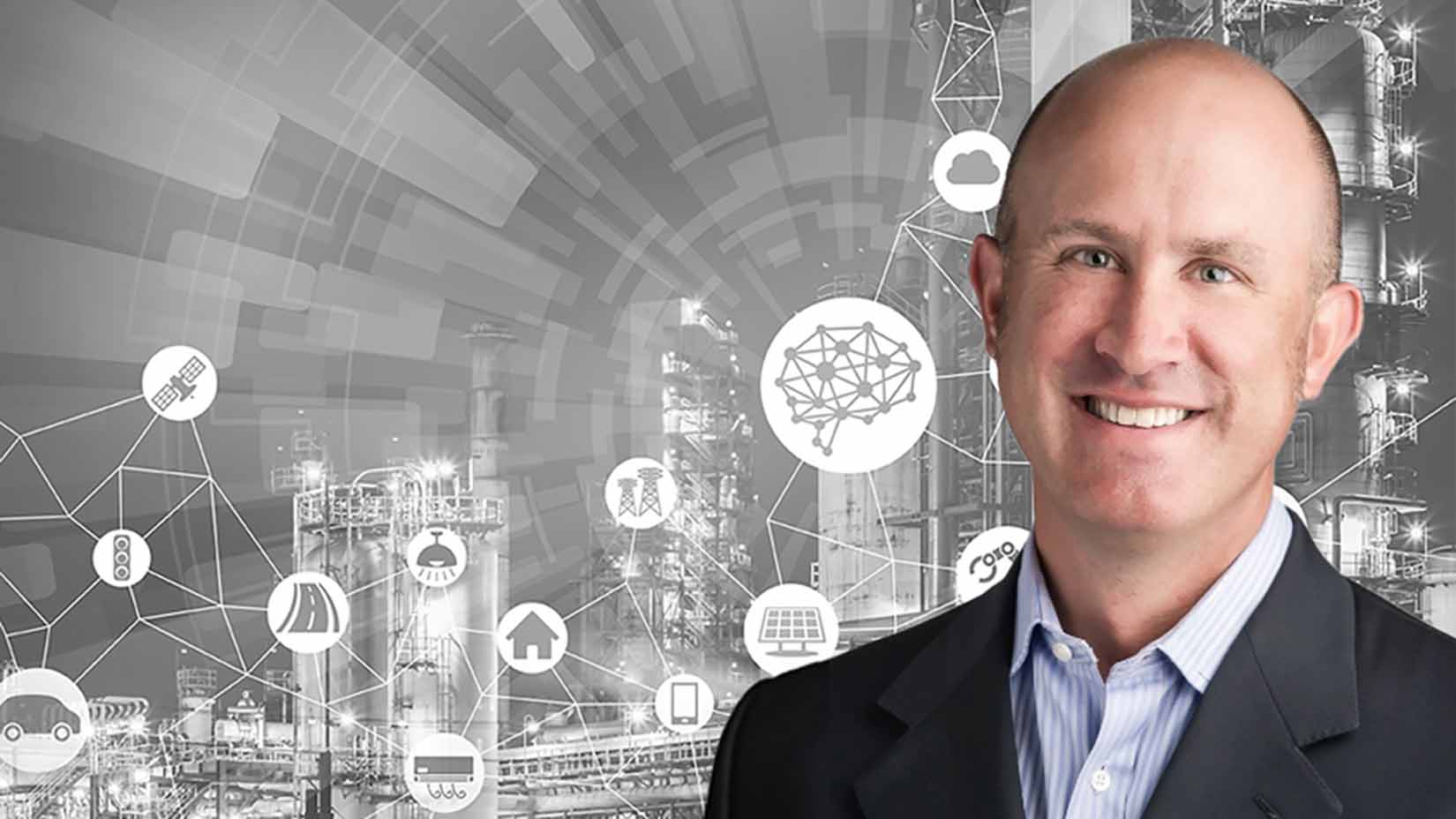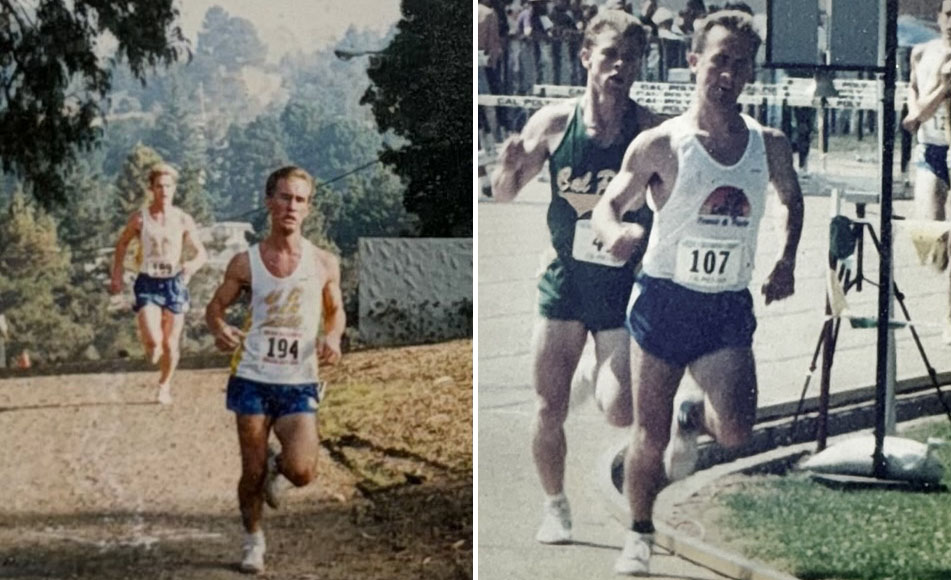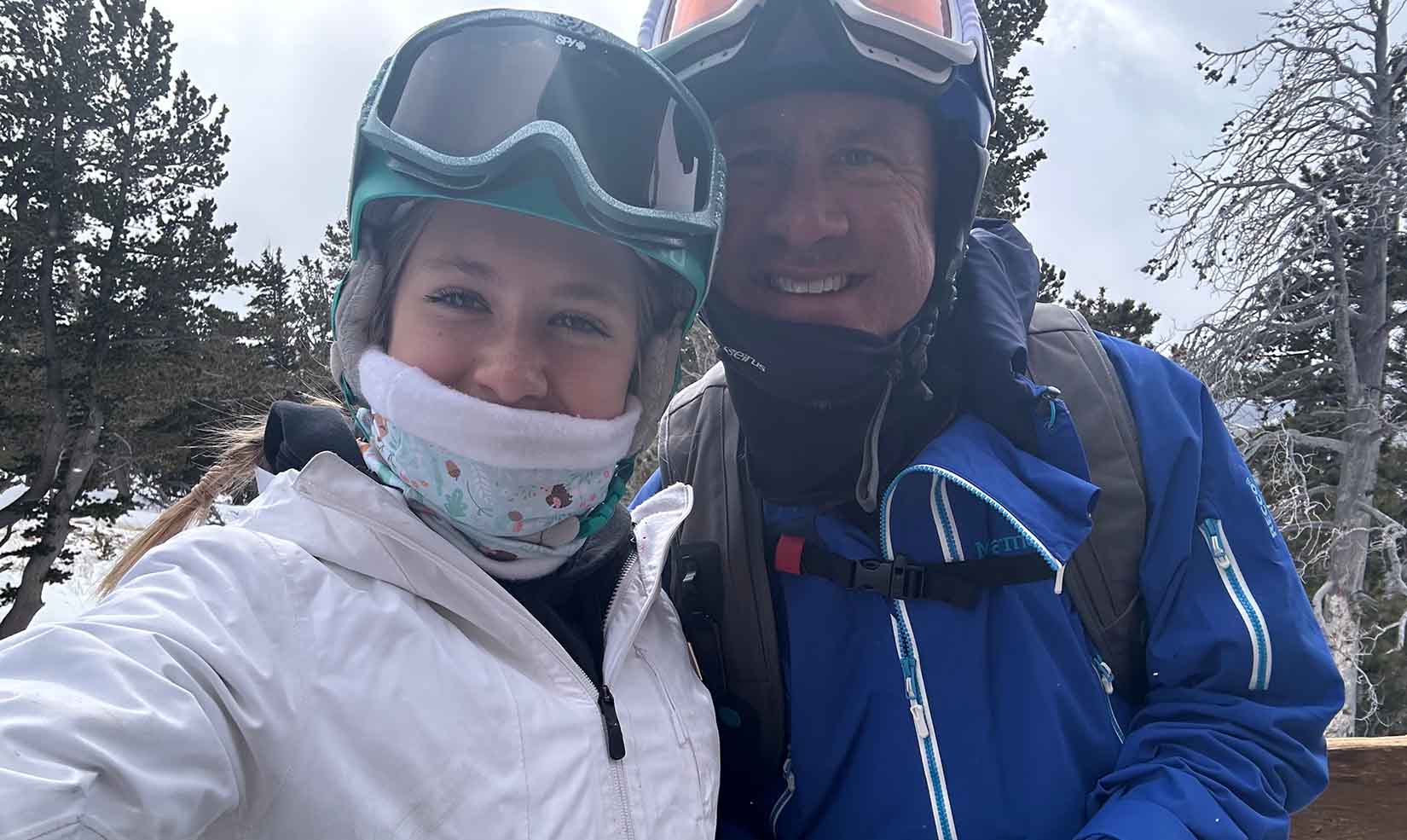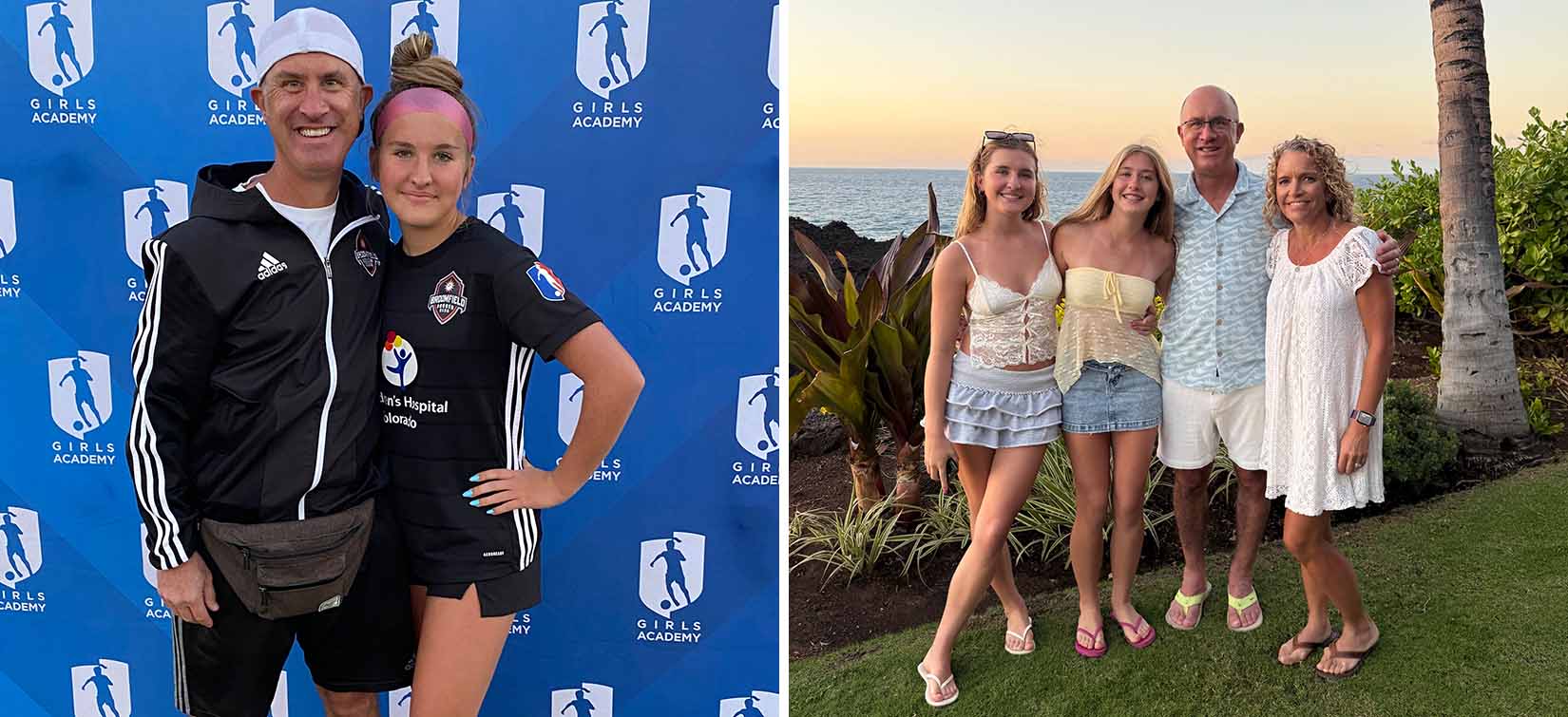Manufacturing Masterminds Q&A With Matt Ringer
The Shy Kid Who Left Law To Forge Chemical (and Human) Bonds

This article is part of the Manufacturing Masterminds profile series, which provides an inside look into the lives, research, and impact of NREL's advanced manufacturing researchers.
At 8 years old, Matt Ringer already had the deep, booming voice of a radio announcer but not the personality to match.
He was a shy, track-and-field kid who spent hours running (and not talking), chasing the coveted 4-minute-mile barrier (he likely would have broken it, too, if a college injury did not thwart his plans). Even when Ringer did talk, he discovered his syrupy voice resonated more with adults than kids.
"Those things change who you are in certain ways," Ringer said.
For a long time, Ringer was not sure who he was—at least in terms of his career. He revered James Bond and other fictional spies who schemed their ways out of no-win situations. He loved planes and Tom Cruise's character in "Top Gun" and considered becoming a fighter pilot. But he also admired Mark Greene, the main character on the medical drama "ER" and the sharp-suited lawyers on "L.A. Law."
In college, Ringer chose suits over lab coats—at least at first. He started as a political science major with law school ambitions, but his dad, an electrical engineer, had one request: "Sure, go be a political science major, but take a few math classes and an engineering class." Ringer agreed and threw in a chemistry course, too. Soon, atoms and molecules and their frenetic energy seemed far more exciting than dense, prelaw readings.
"My skill set is not in reading massive amounts of material; it never has been. It's doing things," Ringer said. "I had to do a lot of work to get into chemical engineering. But I did."

Today, after 23 years at the National Renewable Energy Laboratory (NREL), Ringer has become a bit like one of his beloved energetic atoms. As the laboratory program manager for NREL's advanced manufacturing program, he helps build teams (aka molecules), connecting experts, organizations, and resources. These bonds are what ensure the laboratory's researchers can turn theoretical concepts—like wide-bandgap power electronics, novel polymer formulations, more efficient grid technologies, or more stable water supplies—into real solutions.
"I'm not going to be the person who creates the next sensor for an automotive manufacturing plant in Detroit, right?" Ringer said. "But I can help get the right people together to make that a reality."
In the latest Manufacturing Masterminds Q&A, Ringer shares how he ended up in a people-centered role despite his shy childhood and why he joined NREL despite knowing nothing about the laboratory and its mission. This interview has been edited for clarity and length.
So, how did you go from political science to chemical engineering?
When I applied to college, I was wrapped up in the imaginary life of "L.A. Law." But the first quarter, I took chemistry again, and it really resonated with me. I liked understanding how you could use the energy molecules contained. But I never had a desire to get a Ph.D., and my dad always said that if I added engineering to something, that would make me more hirable. Lo and behold, there was a major called chemical engineering, and I thought, "Well, that's probably what I need to do."

What did you do after you graduated with your chemical engineering degree?
I worked as a research engineer at a startup membrane company in the San Francisco Bay Area called Membrane Technology and Research. I did a lot of pilot tests of our materials at larger companies and realized I was pretty good at talking to everybody from the senior manager all the way to the operator, technician, or mechanic. And I had an opportunity to shift from being a researcher to what we called more of a "sales engineer," so I took it.
What did you do as a "sales engineer"?
I would prepare a quote, work with vendors to get costs for equipment, and then pull a bid package together. I also got to help manufacture the membranes that we sold. I would get all garbed up, get a glue gun, and roll sheets of membrane into a spiral-wound module. One of my sales highlights was spending about six months working with a Malaysian company to create a customized membrane system for their facility. That was my first sale and my one and only patent. That has long since expired, and I don't believe it ever got used, but I still have a copy of it.
Why did you leave? Sounds like you were enjoying that role.
I had been there for six years, and I just needed to do something different and get out of California where I grew up. San Francisco was skyrocketing with dot-com craziness. And I had never envisioned how I would go to a dot-com with my background.
My girlfriend at the time—who's now my wife—was from Colorado, so we decided to come back here. And my former boss found a job posting at NREL. I'll be honest—I knew nothing about NREL.
Then why did you go for the NREL job?
NREL wanted a process engineer. Being a chemical engineer, I thought I needed to go work at a refinery, but I would have had to move to a very remote location to get started. And I wasn't ready to do that. During my NREL interview, they asked what I knew about biomass, and I went on a diatribe about anaerobic digesters that wasn't exactly correct. But apparently, my sales persona, coupled with some of the industry experience I had, fit what they needed here.

How did you become a laboratory program manager?
When I was here for about three years, I wanted to add a little more education into my background. I could go to law school and be an intellectual property attorney, but that's a lot of reading. I could go to business school or get a master's in engineering. Business school resonated with me. So, I went to talk to my boss. I had a whole pitch about why I should get my Master of Business Administration (MBA) and NREL should help pay for it. I said, "Hey, I want to get an MBA," and he said, "Don't say any more. I'll use you in a different role."
One of my first opportunities after I finished my MBA was creating a program where NREL works with small businesses or startups that wanted to develop our technologies. For the first time, I got to work with DOE (the U.S. Department of Energy) in a more formal way, which I really enjoyed.
For me, it always comes back to people, right? There were people at DOE who I just connected with—I understood their world a little bit. And I thought, "Well, how can I do that and help NREL at the same time?" And being a laboratory program manager was that role.

And what does a laboratory program manager do, exactly?
One of the amazing things for somebody like me who doesn't have a Ph.D. is working with the researchers to understand the work they're doing. I'm curious by nature, so the more I asked, the more people wanted to tell me. I'm not going to lie, there were things I didn't understand. As a chemical engineer, I understand atoms and molecules more than I understand electrons. I've had to build a bridge between those things. That's exactly what you do as a laboratory program manager. You bring different things together. You arrange teams. You try to be strategic.
To be successful as a laboratory program manager, you have to know people from throughout the lab: receivables, travel, human resources, web developers, technicians. And you need to ensure the operational side of the lab connects with the needs of the technical side. So, while I'm not doing the research, I can help you find the opportunities, develop stronger proposals, and then execute them.
What's it like to work in advanced manufacturing, specifically?
It's inspiring. The energy space is an opportunity to grow domestic manufacturing. I knew about 3D manufacturing but not what to do with it. But I learned. Now, if I go and talk to some of our researchers about power electronics, I'm not going to understand it all, but I know why they're needed to advance manufacturing.
In an ideal world, what would you most hope to accomplish over the course of your career?
When I was 25 years old, I wanted to make lots of money. Now, I want to see our technologies make an impact. I also like to help new creative people come into NREL, so they can carry on our work. I don't know if I'm the greatest mentor in the world. But I have a lot of experience that I can share with people, and I like seeing people grow.
What advice would you give to someone just starting their career?
You can't skip steps. You can't come into NREL as a researcher and expect to be a research fellow or senior director in five years. A lot of people just want to be the boss—whatever that means—and that's a recipe for disaster. You have to put in the time, be patient, and not always think, "What am I going to be doing in five years?" You're doing what you're doing, and you need to get it done right.
And accept who you are. I'm bald. It's fine. I enjoy it. Accepting who you are and where you are is so important to be happy. Otherwise, you're fighting something that's not real. And there are enough real things to fight.

